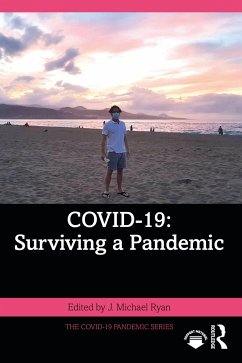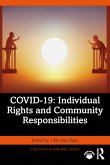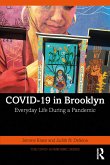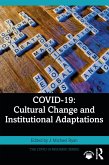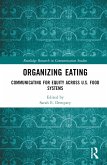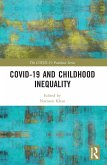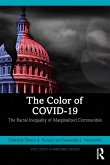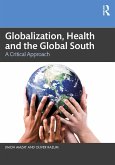COVID-19: Surviving a Pandemic provides critical insights into survival strategies employed by communities and individuals around the world during the pandemic.
A central question since this pandemic began has been how to survive it. That question has applied not just to staying alive, but also to staying healthy, both physically and mentally. Survival is certainly key, but surviving, and what that means, is also critical. The scholarship included in this volume will take a closer look at what it means to survive by addressing such issues as the importance of ethnicity in vaccine uptake, the gendered and racialized impacts of the pandemic, the impact on those with disabilities, questions of food security, and what it means to grieve.
Drawing on the expertise of scholars from around the world, the work presented here represents a remarkable diversity and quality of impassioned scholarship on the impact of COVID-19 and is a timely and critical advance in knowledge related to the pandemic.
A central question since this pandemic began has been how to survive it. That question has applied not just to staying alive, but also to staying healthy, both physically and mentally. Survival is certainly key, but surviving, and what that means, is also critical. The scholarship included in this volume will take a closer look at what it means to survive by addressing such issues as the importance of ethnicity in vaccine uptake, the gendered and racialized impacts of the pandemic, the impact on those with disabilities, questions of food security, and what it means to grieve.
Drawing on the expertise of scholars from around the world, the work presented here represents a remarkable diversity and quality of impassioned scholarship on the impact of COVID-19 and is a timely and critical advance in knowledge related to the pandemic.
'At the forefront of social science knowledge about the COVID-19 pandemic is J. Michael Ryan's The COVID-19 Pandemic Series. The latest addition, "Surviving a Pandemic," is no exception. This volume takes an in-depth look at how communities and individuals survived the virus. With rich data outlining gendered and racialized impacts, the book gives a detailed account exploring food security, grieving and vaccine uptake, all the while being sensitive to the various impacts on geographically and demographically diverse populations. This book is a must read for anyone wanting to inform themselves about how to survive a pandemic.'
Sharyn Davies, Associate Professor, Monash University, Australia
'This book provides a compelling account of the disruptions occurring globally during the following the COVID-19 pandemic. Using diverse examples across diverse settings, the book illustrates how social processes are at the forefront of responses to disease, such that pre-existing inequalities become exacerbated. It provides a clear demonstration of the analytical power of the social sciences to disentangle the complexities of medicine, science, and society. It is vital reading for practitioners and scholars in public health and health sciences, or anyone who seeks to deepen their knowledge about the social inequities that emerged, or became more visible, as a result of the pandemic.'
Karen Willis, Professor of Public Health, Victoria University, Australia
Sharyn Davies, Associate Professor, Monash University, Australia
'This book provides a compelling account of the disruptions occurring globally during the following the COVID-19 pandemic. Using diverse examples across diverse settings, the book illustrates how social processes are at the forefront of responses to disease, such that pre-existing inequalities become exacerbated. It provides a clear demonstration of the analytical power of the social sciences to disentangle the complexities of medicine, science, and society. It is vital reading for practitioners and scholars in public health and health sciences, or anyone who seeks to deepen their knowledge about the social inequities that emerged, or became more visible, as a result of the pandemic.'
Karen Willis, Professor of Public Health, Victoria University, Australia

